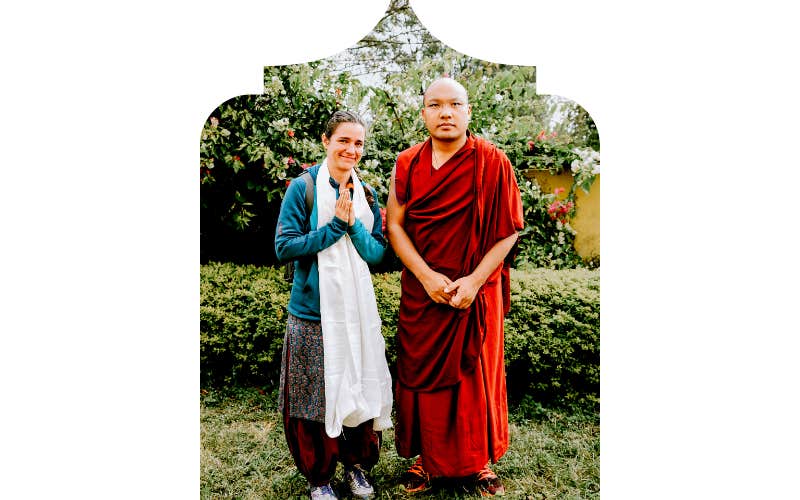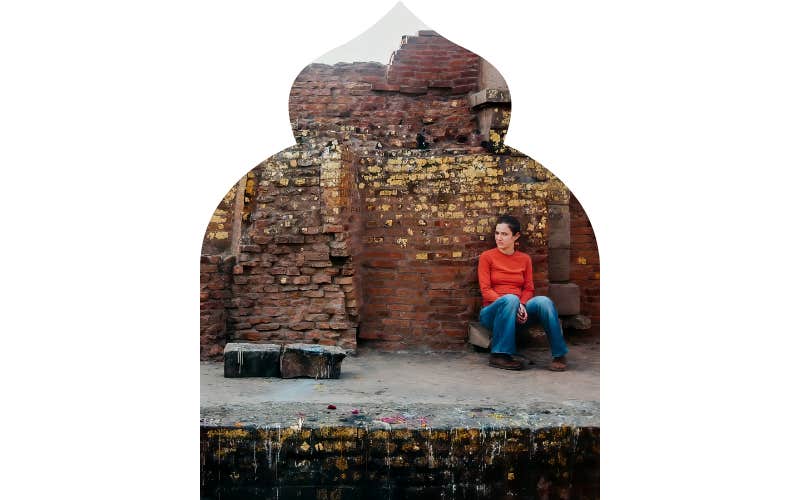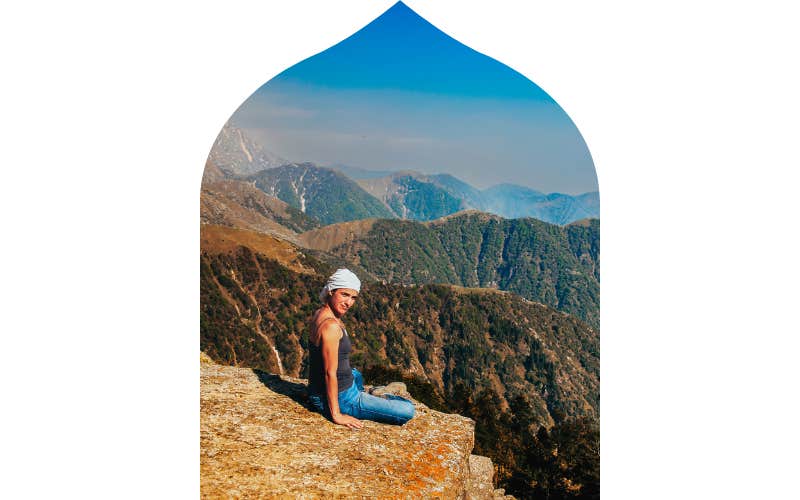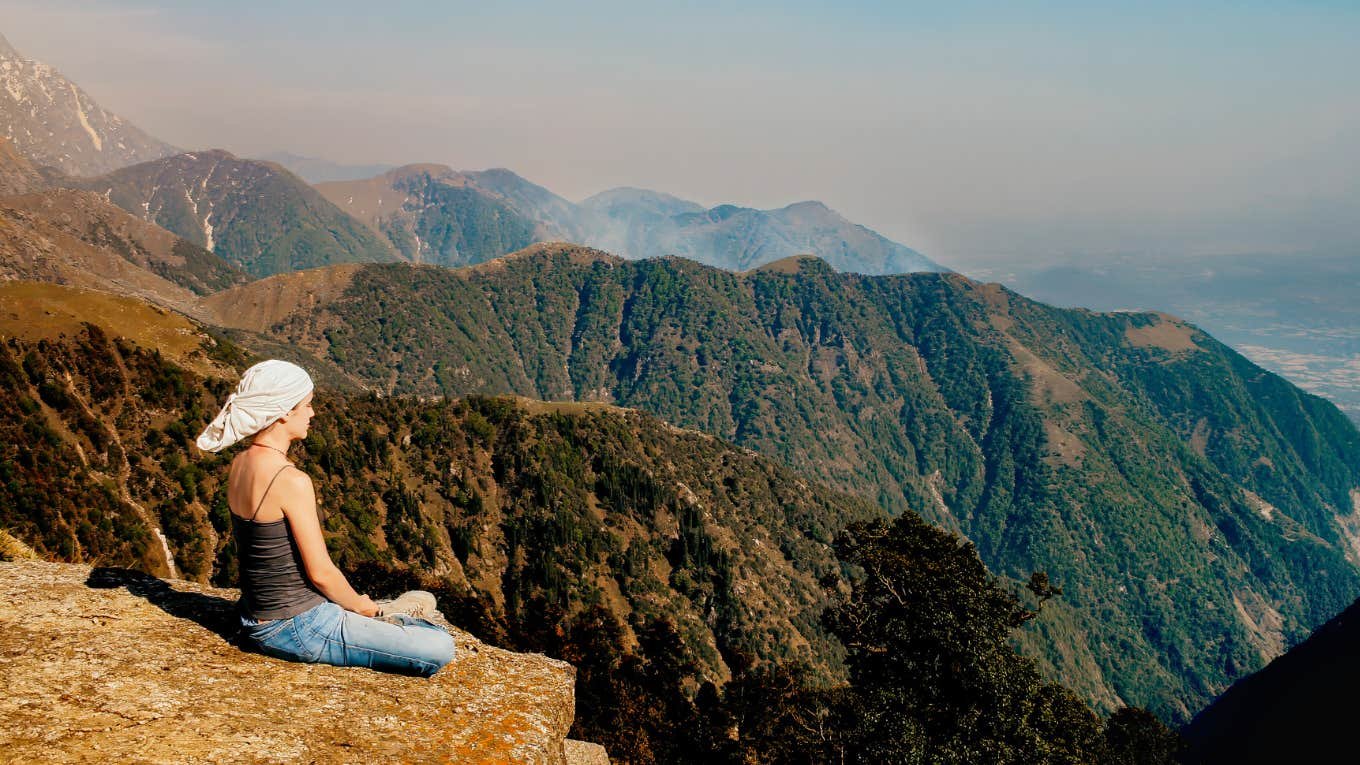At the ripe old age of 22, I felt it was time to mature and wake up, so I packed up my battered backpack and headed to India, spending several months on the road, meditating in ashrams, doing yoga, and spending afternoons. He spent his time drinking chai and playing the guitar. With other millennial hippies.
In 2004, most of the OG hippies were well into the baby boomer generation, and the era of the savvy digital traveler had not yet begun. Therefore, some of us had the great opportunity to explore the land without selfies or excessive maps to avoid getting lost and finding yourself in unexpected magical situations.
Among the many lessons learned:
- Lesson 0.5: Probiotics are your secret weapon when navigating India (trust me, you don’t need a stomach debacle to verify this).
- Lesson 0.8: Why not wear a saree with a backpack and travel shoes? Not a comfortable fashion statement.
The first few weeks were spent in peace and quiet in the suburbs of Mumbai (that’s a lie, at first I spent a few days shopping in the bazaars of Mumbai, which was a treat).
I can definitely recommend this (the shopping was great too, but it was mainly a quiet retreat). I woke up at 4am on the retreat. The memory of walking into a meditation hall filled with other meditators early in the morning still moves me.
 Photographed by the author
Photographed by the author
Yes, memory is indeed really selective. I was in such a bad headspace that I seemed to forget how much time was left until the breakfast gong. But still, I now know that something deeper was going on that would stay with me for years to come.
Exactly 20 years later, I’m looking out the window at the snow-covered pine trees and trying to put into words what I learned.
Here are three things I learned from my spiritual awakening in India:
1. Silence is a true offering to your best self.
It’s not easy to be silent. unplugging your phone (thankfully it wasn’t such a challenge back then as it was before smartphones, but it takes courage now), avoiding distracting media; Furthermore, avoiding verbal communication with others can be quite frightening. It certainly was for me.
But to go into a supportive retreat where you can spend a few days in silence is to say: “I want to listen and give space to the wisest and most loving parts of me, the parts that whisper about what is best for me and about holiness.” Being part of this human tribe thing.
 Photographed by the author
Photographed by the author
2. Support, support, support — that’s the key
Steve Hoskinson, founder of Organic Intelligence, has a beautiful quote: “We grow and heal with support.”
I arrived in India on my own and struggled with food, language, and logistics. It was somehow OK. You’ll meet fellow travelers and your path will expand across the vibrant land of India. Then I attended very strict disciplines of various retreats and faced mosquitoes and a lot of “unsupportive silence”.
For me, silence makes a crucial difference. A silence that has deep loving support built into it, or a silence that comes from a sense of neediness, that in order to be healthy we must prove that we don’t need anyone or anything. .
I was young and it felt like the right thing to do. But I’ve seen that there is an easier way. Looking back, I sometimes felt very lonely and insecure without a community to share my inner world with. Over the years, working with others and myself, I have found that a loving environment and the support of as much kindness as possible can accelerate a person’s journey to spiritual inner wisdom. That was an important lesson for me.
In our hyper-individualistic, patriarchal worldview, the belief that self-sufficiency is the mark of a well-organized human being shows how disconnected we are from our tribal nature. In other words, it shows how disconnected we are from being a species that needs others to thrive and survive, much less a species that needs others to survive. Get better.
3. The journey to inner peace doesn’t have to be a battle.
“You’re discovering yourself, not expelling yourself.” — Mingyur Rinpoche
My eternal love, meditation, also brought about some serious conflicts. Because the world of New Age spirituality and the confusing messages of self-improvement movements were intertwined with my deep-seated patterns, the belief that overcoming my “flaws” was the gateway to freedom, I found myself has far exceeded its limits. The idea that in order to be free I needed to fight a very painful battle against my “negativity” did not leave me easily.
I was fascinated by the dichotomy among spiritual practitioners. Some had come from long seclusions to appear stern and overly disciplined, while others had returned from months of cave and silence, loving, soft, and exuding open hearts. This journey certainly seems to include some struggle, reconciliation with humanity, and letting go of overreach, but the persistent inner war is no longer a path to peace for me. I don’t think so.
The moment I wrote myself a post-it note, I concluded that if I feel like I’m trying too hard for a strength I don’t have, it’s not a good long-term strategy.
 Photographed by the author
Photographed by the author
I believe that for those of us who have grown up in environments where social bonds are fickle and developmental trauma is rife, advancing to hardcore practice without caring for a loving community and space for vulnerability is ultimately I have come into contact with enough spiritual seekers to believe that the consequences could be dangerous. It does more harm than good. We can end up feeling overwhelmed and unadjusted because we end up touching the parts of ourselves that hurt the most, thinking that the path is all about “us” getting through the pain.
I don’t think we can get rid of the things we don’t like about ourselves. We come to love them and integrate them. And what is no longer needed within us begins to slowly and effortlessly disappear.
As for the cliché: “Was India the land of spirituality I wanted?”
The short answer is yes.
Reality: India is like a complicated relationship status on Facebook. Rooted in ancient spiritual traditions and the fascination of remote Himalayan yogis, this region is also a place of extreme poverty and injustice.
But beyond the cliché, my journey through India unfolded with magical moments. There were many moments when things seemed to fall into place effortlessly. When a bus carrying pilgrims heading to places they needed to go passed me and offered to give me a ride as I couldn’t take a step forward due to stomach issues (forget the probiotics people). Please don’t! When I learned about meditation and wanted to try it, I noticed a small ashram just a few minutes away. And when I met the right people at the right time for the discussion I really needed.
Yes, I’m still going back, ditching my smartphone and reliving my Indian adventures.
Christina Bonet is an essential coach who provides trauma-informed sessions for mental and physical health. She has over 23 years of experience coaching individuals on their transformational journey towards self-actualization and overall well-being.

